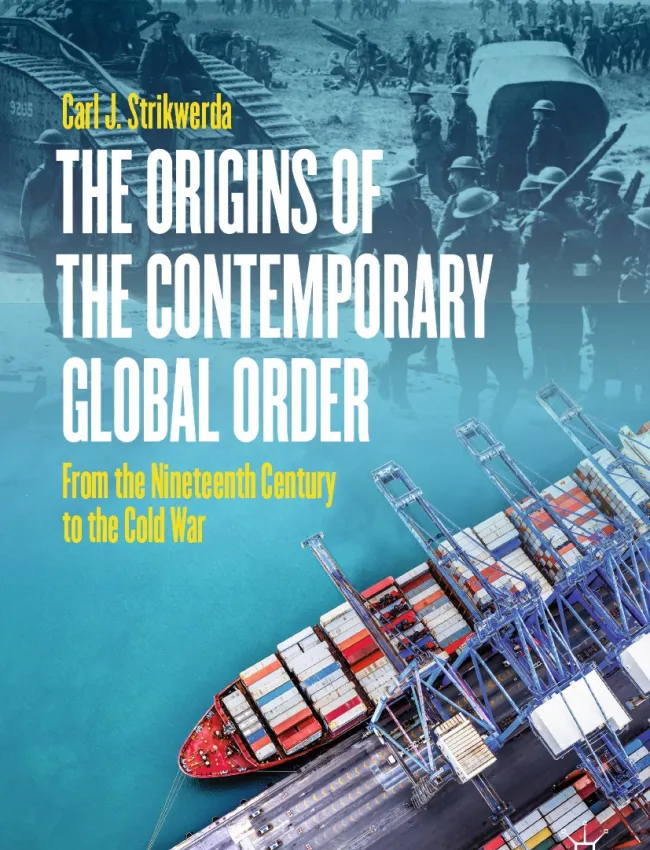Book Talk with Carl Strikwerda: "The Origins of the Contemporary Global Order"

4:00pm - 5:00pm EDT
10:00pm - 11:00pm CEST
11:00pm - 12:00am EEST
About this event
In his just-released book, “The Origins of the Contemporary Global Order: From the Nineteenth Century to the Cold War”, historian Carl Strikwerda interprets anew the emergence of the institutions and practices created by the United States and its allies after World War II. That order is now being challenged by Russia’s invasion of Ukraine and China’s aggressive foreign policy, both of which threaten the ideals of peace, free trade, and internationalism that have undergirded the international system for almost a century.
The history of globalization, imperialism, and the economic blocs of the 1930s, Strikwerda argues, shows why the United States initially failed to create a global order in the immediate postwar period. The global order that emerged by 1950, he argues, depended as much on cooperation with other countries as leadership by the United States. The global order, however, continued to be shaped by the heritage of imperialism and tensions between regionalism and globalism. As a result, Strikwerda writes, Russia and China today seek to acquire the gains that globalization offers while rejecting the current international order in favor of economic blocs.
As the new US administration pursues policies that spur protectionism and isolation, this history has contemporary repercussions for the public and policymakers.
Event Speakers
George Noll
Resident Senior FellowGeorge Noll is a member of the US senior foreign service with the rank of Minister Counselor. He joined the Department of State in 1997 and most recently served as head of the Office of Palestinian Affairs in Jerusalem. Hi...
Carl Strikwerda
AuthorCarl Strikwerda is the author of “The Origins of the Contemporary Global Order: From the Nineteenth Century to the Cold War”, published by Palgrave Macmillan in London in 2025. He is the co-editor or author of four books and 30...